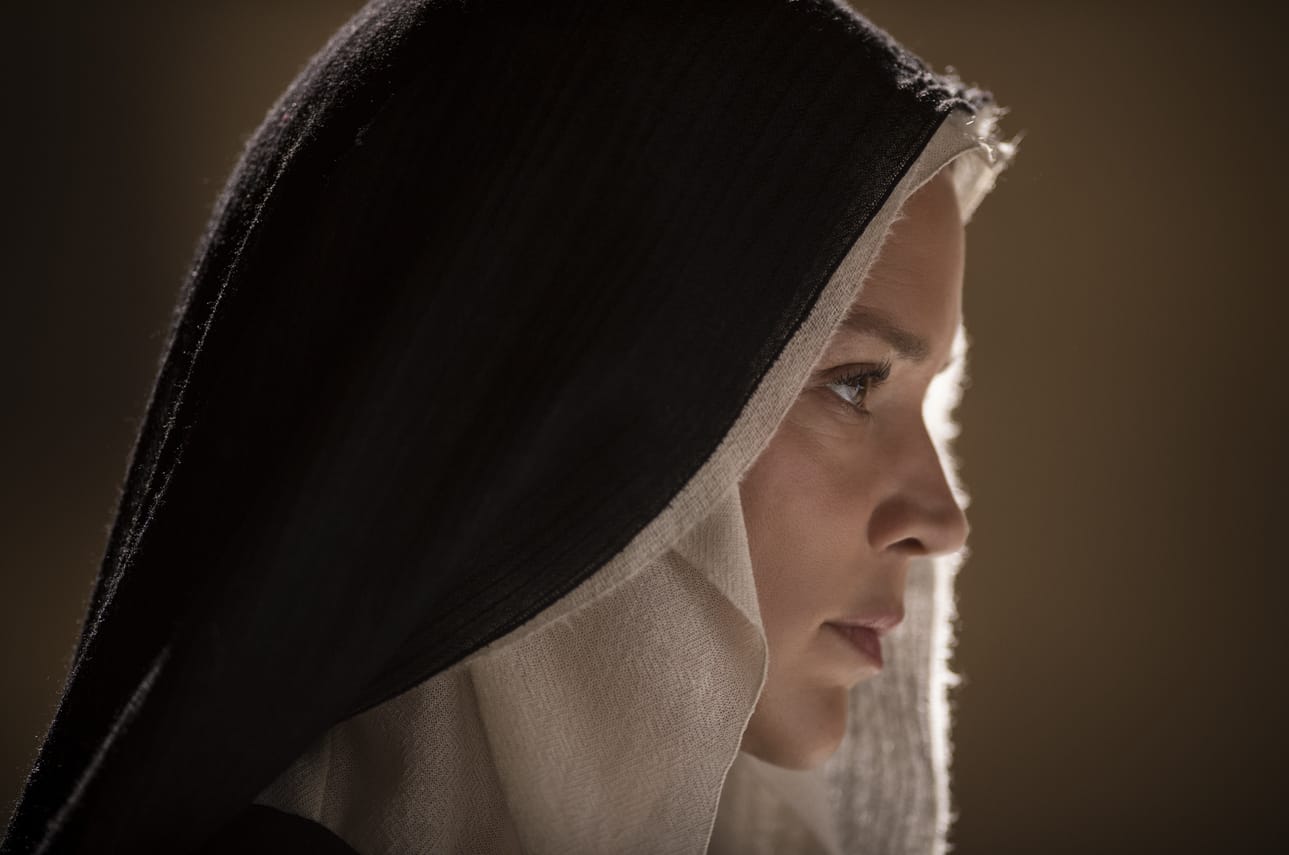Words: Callie Petch
 Briefly taking a giant time-jump to the very last film I saw at the Festival with this plug, but the hack writer in me cannot resist the chance to make a dispatch entirely consisting of B-titled movies. Much like with Language Lessons, I cannot talk properly about it here due to having “sold” (the quotation marks are cos I didn’t get paid) my thoughts on the film to a national website, but Mamoru Hosada’s latest anime extravaganza Belle (Grade: A-) is absolutely sensational. A truly beautiful, visually astonishing, stunningly empathetic, and slyly clever reworking of Beauty and the Beast for our social media age, I was full-on weeping by the climax and the posse I rocked up with were similarly in floods of tears. This could be recency bias talking, and the man simply don’t miss anyway, but it might be favourite Mamoru Hosada film? It’s certainly the most Mamoru Hosada film, mixing and matching together elements of his entire filmography – from Summer Wars to Mirai to even Digimon: The Movie – albeit in such a way that the resulting concoction never once feels like a rehash. I just have been unable to stop thinking about Belle in the fortnight since viewing and the 2022 release window cannot get here fast enough for my liking. Head over to the BFI (at this link) for further thoughts.
Briefly taking a giant time-jump to the very last film I saw at the Festival with this plug, but the hack writer in me cannot resist the chance to make a dispatch entirely consisting of B-titled movies. Much like with Language Lessons, I cannot talk properly about it here due to having “sold” (the quotation marks are cos I didn’t get paid) my thoughts on the film to a national website, but Mamoru Hosada’s latest anime extravaganza Belle (Grade: A-) is absolutely sensational. A truly beautiful, visually astonishing, stunningly empathetic, and slyly clever reworking of Beauty and the Beast for our social media age, I was full-on weeping by the climax and the posse I rocked up with were similarly in floods of tears. This could be recency bias talking, and the man simply don’t miss anyway, but it might be favourite Mamoru Hosada film? It’s certainly the most Mamoru Hosada film, mixing and matching together elements of his entire filmography – from Summer Wars to Mirai to even Digimon: The Movie – albeit in such a way that the resulting concoction never once feels like a rehash. I just have been unable to stop thinking about Belle in the fortnight since viewing and the 2022 release window cannot get here fast enough for my liking. Head over to the BFI (at this link) for further thoughts.
Five years ago, I attended my first London Film Festival. A wide-eyed, super-excited, imposter-syndrome laden bairn writing for the student newspaper of a university they had just graduated from, taking in the sights, sounds, and chaos of the country’s biggest film festival for the very first time. Whilst I had a whole bunch of must-see films on my list for that first journey down, I also took the opportunity of many screening blocks without an immediately obvious hook to try out a number of works that I ordinarily would’ve passed for one reason or another. One such potluck choice was A Quiet Passion, a biopic about poet Emily Dickinson by Terence Davies that had all the hallmarks of a stuffy period costume drama I ordinarily couldn’t stand. So, imagine how pleasantly surprised I was by Davies’ film being such a witty, soulful, and incisive examination of the depression and unfulfillment Dickinson experienced in her lifetime, headed up by a Cynthia Nixon performance that deserved significantly more plaudits than it ended up getting.
I was in awe of its composition, the depth of its character study, the upending of staid period biopic conventions, and just how artfully it realised the sensations of deep depression I could relate to as someone similarly suffering for such a long time. A Quiet Passion ended up one of my favourite films of the absurdly-strong 2016 LFF line-up, an opinion which held over half a year later when I got to see it again in general release. So, when the 2021 programme was released in late-September and I saw that Davies’ had a new film on there – another period poet biopic, this time about WWI veteran Siegfried Sassoon, played by rising star Jack Lowden, his various romantic dalliances with fellow closeted poets, and his self-destructive depression – one could say that I was more than a teensy bit excited. Especially since it was on-paper more my speed than A Quiet Passion initially read: Sassoon being someone whose work I briefly studied back in GCSE History, and the promise of openly queer text with an army of cute twinks to respectfully admire in between another gutting character study. Get that first “A” grade of the Festival ready, folks! Davies is gonna do it again!
 …I really wanted to like Benediction (Grade: C+) more. Truly, I wanted to love this film the way that so many other critics and friends of mine at the Festival did. I tried to so hard to get on its wavelength. I started chalking up my not really feeling it to the fact that it was Day 9 of a two-week long-day-late-night-early-morning festival so a movie this slow, quiet, and reserved wasn’t really being seen in the most optimal of environments. I saw the movie’s extended final shot, very reminiscent of the one which closed out Céline Sciamma’s masterpiece Portrait of a Lady on Fire, and found myself actively pushing my feelings to hit some kind of reaction, tears or anguish or incredulity or something anything! But as the credits rolled, I had to face the fact that I was left cold by Davies’ latest. A film objectively, in its construction and performances, very good yet one I spent the entirety of stuck frustratedly on the outside, mentally yanking on the gates doing an Eric Andre “LET ME IIIIIIIIIINNNNNN!!!!”
…I really wanted to like Benediction (Grade: C+) more. Truly, I wanted to love this film the way that so many other critics and friends of mine at the Festival did. I tried to so hard to get on its wavelength. I started chalking up my not really feeling it to the fact that it was Day 9 of a two-week long-day-late-night-early-morning festival so a movie this slow, quiet, and reserved wasn’t really being seen in the most optimal of environments. I saw the movie’s extended final shot, very reminiscent of the one which closed out Céline Sciamma’s masterpiece Portrait of a Lady on Fire, and found myself actively pushing my feelings to hit some kind of reaction, tears or anguish or incredulity or something anything! But as the credits rolled, I had to face the fact that I was left cold by Davies’ latest. A film objectively, in its construction and performances, very good yet one I spent the entirety of stuck frustratedly on the outside, mentally yanking on the gates doing an Eric Andre “LET ME IIIIIIIIIINNNNNN!!!!”
What’s most frustrating is that Benediction shares a lot in common with A Quiet Passion in more than just similar premises. On a fundamental level, this is not a biopic in the traditional sense, with a clear structure and a greatest hits Wiki summary of the subject’s life. You will not see him sit down to compose any of his haunting couplets. There are no trips to the trenches where he performed feats of heroism and witnessed the horrors and commanding incompetency which calcified his anti-war views. Not a single mention of his post-war novels or even a clear sensation of how much time has been spanned by the movie’s narrative – I’d roughly put it down as starting around 1917, during his stay at Craiglockhart with Wilfred Owen (Matthew Tennyson), and concluding around about 1935, shortly after his marriage to Hester Gatty (Kate Phillips), but don’t quote me on those. If you’re not already familiar with at least the basic details of Sassoon’s life, you may end up being lost more than once, although that’s arguably just as much the result of some weirdly wonky editing regarding scene construction and arrangement.
 Benediction is more of a tonal piece, in that regard. A single-minded character study about drilling down into the contradictory desire for both companionship and solitude of its subject, a man who believes he has something to say yet is terrified of being venerated for doing so. The deep crippling loneliness, guilt, and trauma which pushes him into a series of intentionally unfulfilling relationships with similar-looking men all trying in vain to stand in for the one who got away (and shot a week before Armistice). This often-stifling depression is largely depicted via Nicola Daley’s studiously composed cinematography which frequently sucks the air out of the room via isolating characters in a shot’s framing and smart usage of pull-focus. Much like A Quiet Passion, extracts of Sassoon’s prose and poetry bridge scenes as means to provide further insight into his mind, although these are much less effective because, this time, they’re often accompanied by still image tableaus of the war which makes things feel a little BBC Four documentary.
Benediction is more of a tonal piece, in that regard. A single-minded character study about drilling down into the contradictory desire for both companionship and solitude of its subject, a man who believes he has something to say yet is terrified of being venerated for doing so. The deep crippling loneliness, guilt, and trauma which pushes him into a series of intentionally unfulfilling relationships with similar-looking men all trying in vain to stand in for the one who got away (and shot a week before Armistice). This often-stifling depression is largely depicted via Nicola Daley’s studiously composed cinematography which frequently sucks the air out of the room via isolating characters in a shot’s framing and smart usage of pull-focus. Much like A Quiet Passion, extracts of Sassoon’s prose and poetry bridge scenes as means to provide further insight into his mind, although these are much less effective because, this time, they’re often accompanied by still image tableaus of the war which makes things feel a little BBC Four documentary.
In its best stretches, Davies’ screenplay displays a biting wit, usually when Sassoon and the various cast of cads and characters he surrounds himself with drolly observe or snipe on proceedings. Not only do they provide a welcome levity to a movie which can otherwise be exhaustingly dour, in doing so the witty repartee also exposes the prickly fault lines and insecurities within each character and where the good-natured ribbing turns cruel, especially where relationships are involved. Jeremy Irvine’s near-faultless depiction of the toxic Ivor Novello in particular demonstrates the alluring and repellent contrasts of his personality through these cutting barbs, so we understand why Sassoon would try so hard to win his affection despite the jerk being no-good. This is, however, very much Lowden’s show and he is excellent as Sassoon. Hurt and vulnerable, aloof and prickly, judgemental yet self-effacing to a destructive fault. His work during that aforementioned final shot is awards worthy all by itself and further cements him as one of our great young acting talents.
 Yet, despite all of that, I just could not bring myself to fully like Benediction instead of merely admiring it. It is, I think by design, a really cold and morose film which can be tough to sit with for the nearly 140 minutes it asks for. Dickinson had a support system for most of A Quiet Passion so the film at large covered a wider spectrum of emotions, some stretches even sorta resembling fun, and it was only near the end when that support system disintegrated where things really became heavy. Sassoon, at least as depicted by Davies, never had that kind of support system so the mood is bitter and yearning and isolating all the time, particularly in the trauma of his undramatised WWI years. There’s every chance it’s just the sort of film one needs to be in the right mood for to fully appreciate.
Yet, despite all of that, I just could not bring myself to fully like Benediction instead of merely admiring it. It is, I think by design, a really cold and morose film which can be tough to sit with for the nearly 140 minutes it asks for. Dickinson had a support system for most of A Quiet Passion so the film at large covered a wider spectrum of emotions, some stretches even sorta resembling fun, and it was only near the end when that support system disintegrated where things really became heavy. Sassoon, at least as depicted by Davies, never had that kind of support system so the mood is bitter and yearning and isolating all the time, particularly in the trauma of his undramatised WWI years. There’s every chance it’s just the sort of film one needs to be in the right mood for to fully appreciate.
But there are legitimate grievances which perhaps entrenched that cold remove, mainly pertaining to the overall structure of Davies’ screenplay. The storytelling is very disjointed and unfocussed. Time is poorly conveyed, lengthy stretches of film occur without any real forward momentum in the characters’ development or clear indication of what and when the payoff we’re journeying towards will arrive, and the prior-referenced presentation of Sassoon’s poetry – all of which are delivered with the same dispassionately solemn intonation and slow cross-dissolved imagery – quickly falls into a repetitious rut. Going for a mood piece is fine, again A Quiet Passion operated from almost exactly the same playbook and that movie remains incredible, but they should still have at least minor variation rather than just holding one note for an exhaustingly long period of time. Meanwhile, there are also flash-forwards to Sassoon in the 1960s (now played by a wonkily-accented Peter Capaldi) as he experiences a late-in-life desire for religious guidance and these segments don’t tell the viewer anything the main story hadn’t already adequately conveyed, save for dragging the movie out another 20 or so minutes.
It’s a shame. At risk of being accused of the very numbing repetition I just levied at the film itself, I really cannot stress enough how much I wanted to love Benediction. To have, five years ago, been absolutely floored and emotionally enriched by a movie I’d seen on a whim despite it not sounding appealing at all going in… I wanted that same experience with something that I believed to be much more my speed since Terence Davies had proven he could deliver it. Only to come away without having felt anything close to a similar reaction. It bums me out. Maybe a rewatch might help? I get the sensation this is something that might grow with more time and repeat viewings teasing out the nuances not immediately apparent in a high-octane festival setting. But, for now, Benediction is up there in the dubious battle for LFF 2021’s Biggest Disappointment.
 That said, it’s got real competition against another dispiriting follow-up by a returning filmmaker from the 2016 LFF season. If I say to you, the movie-knowledgeable reader, “Paul Verhoeven lesbian nun historical drama,” chances are you’ve got a set of expectations planted in your head about the results. Dutch bad boy Verhoeven having made a career out of campy, blackly-comic, gleefully provocative trash, where high-brow and low-brow cross-pollinate their way through the Karma Sutra on the line of good/bad taste. So, handing him the non-fiction source material of Judith Brown’s Immodest Acts – about Tuscany nun Benedetta (Virginie Efira) in the 17th Century who becomes revered for her alleged ability to channel the divine voice of God only to be conspired against and violently persecuted for her sapphic inclinations with fellow nun Bartolomea (Daphne Patakia) – should surely be a home-run of, at the very least, guilty entertainment for the director of Showgirls, Basic Instinct, and Elle, yeah?
That said, it’s got real competition against another dispiriting follow-up by a returning filmmaker from the 2016 LFF season. If I say to you, the movie-knowledgeable reader, “Paul Verhoeven lesbian nun historical drama,” chances are you’ve got a set of expectations planted in your head about the results. Dutch bad boy Verhoeven having made a career out of campy, blackly-comic, gleefully provocative trash, where high-brow and low-brow cross-pollinate their way through the Karma Sutra on the line of good/bad taste. So, handing him the non-fiction source material of Judith Brown’s Immodest Acts – about Tuscany nun Benedetta (Virginie Efira) in the 17th Century who becomes revered for her alleged ability to channel the divine voice of God only to be conspired against and violently persecuted for her sapphic inclinations with fellow nun Bartolomea (Daphne Patakia) – should surely be a home-run of, at the very least, guilty entertainment for the director of Showgirls, Basic Instinct, and Elle, yeah?
Well… for the first hour, at least. It takes approximately 90 seconds after the title cards for Verhoeven’s usual brand of campy schlock to make itself known on the material of Benedetta (Grade: C). 10-year-old Benedetta and her family get stopped on their way to the covenant by highwaymen with evil intentions who laugh in the face of her insistence that the Virgin Mary shall watch over and protect her… whereupon a passing pigeon shits in directly into one of the highwaymen’s eyes as a sign of that being the case. Passed into the care of Abbess Charlotte Rampling, about 10 minutes later, young Benedetta goes to pray in front of another statue in the dead of night only for said statue to collapse on top of her… miraculously not crushing the child but giving her the chance to take a firm grasp of the statue’s bare breast and a brief curious suck of its teat before the arrival of other nuns to pull her out safely. This isn’t even mentioning the recurring visions of Jesus the grown-up Benedetta has, often times a literal White Knight turning up to slay impure thoughts, or the time she has mental sex with him nailed to the cross, or the interesting usage of a Virgin Mary carving she and Bartolomea explore later on.
 Yep, it’s a Verhoeven movie, alright. That first hour is the master in full dark-comedy blatant-transgression mode. Toilet humour, cartoonish violence, unashamed blasphemy. A potentially stale by-the-book take on this kind of historical religion biopic finds an audacious electricity via Verhoeven’s full-force embrace of the camp and a naughty-boy attitude towards the source material. There is indeed more than a little Basic Instinct in the, what could charitably be described as, courtship between Benedetta and Bartolomea. Plus, it’s genuinely funny. A lot of these shock value moments function as legitimate gags, like Verhoeven is letting us in on the potential central joke of the premise, and a gradual cliquey war between those who believe Benedetta’s visions and those who think she’s merely a fraud cementing her power within the abbey has some hilariously petty dialogue exchanges. I’m still laughing over Benedetta’s off-hand remark to one such person post-vision that “Jesus didn’t say anything about you.”
Yep, it’s a Verhoeven movie, alright. That first hour is the master in full dark-comedy blatant-transgression mode. Toilet humour, cartoonish violence, unashamed blasphemy. A potentially stale by-the-book take on this kind of historical religion biopic finds an audacious electricity via Verhoeven’s full-force embrace of the camp and a naughty-boy attitude towards the source material. There is indeed more than a little Basic Instinct in the, what could charitably be described as, courtship between Benedetta and Bartolomea. Plus, it’s genuinely funny. A lot of these shock value moments function as legitimate gags, like Verhoeven is letting us in on the potential central joke of the premise, and a gradual cliquey war between those who believe Benedetta’s visions and those who think she’s merely a fraud cementing her power within the abbey has some hilariously petty dialogue exchanges. I’m still laughing over Benedetta’s off-hand remark to one such person post-vision that “Jesus didn’t say anything about you.”
Alas, the fun cannot last and, almost immediately after the big Male Gaze-y (despite cinematographer Jeanne Lapoirie’s best efforts) sex scene, Verhoeven has the film completely abandon the wild dark-comedy provocation in favour of playing the second hour as a straightforward historical drama. Ironically, when the events in-narrative become their most blasphemous, Benedetta as a film aborts tack. Not only does this cause a massive tonal whiplash between the film’s two halves, delineated when The Nuncio (Lambert Wilson) turns up to investigate claims of false prophetism and sapphism, but it also exposes a core flaw in the movie at large that all the shock value and campy melodrama was trying to hide. Benedetta lacks a compelling and understandable central character.
 It’s not really the fault of Efira, her performance is 110% committed the entire time as is everybody’s. But Verhoeven and David Birke’s screenplay seems to have no idea or take on who Benedetta was. Although it allows us to see her visions, their realisations are so utterly ridiculous that one gets the sense we’re supposed to be at a slightly disbelieving remove as to whether she is legit or just cleverly scamming everyone else to whatever end; this is where much of the drama and tension of the second half comes from, the kernel of doubt. Benedetta, therefore, wildly swings as a character from scene to scene and it’s hard to get a sense of what drives her actions or why we’re supposed to care about her besides the victimisation she eventually receives. Ditto Bartolomea, whose actions and overall usage in the story open up a massive can of worms about predatory lesbianism stereotypes I’d hoped Verhoeven had gotten past. It’s a far cry from his prior film, 2016’s Elle, where one could always understand why its lead character acted the unconventional way she did and consequently the provocation of Verhoeven’s screenplay/direction had an ultimate point behind them.
It’s not really the fault of Efira, her performance is 110% committed the entire time as is everybody’s. But Verhoeven and David Birke’s screenplay seems to have no idea or take on who Benedetta was. Although it allows us to see her visions, their realisations are so utterly ridiculous that one gets the sense we’re supposed to be at a slightly disbelieving remove as to whether she is legit or just cleverly scamming everyone else to whatever end; this is where much of the drama and tension of the second half comes from, the kernel of doubt. Benedetta, therefore, wildly swings as a character from scene to scene and it’s hard to get a sense of what drives her actions or why we’re supposed to care about her besides the victimisation she eventually receives. Ditto Bartolomea, whose actions and overall usage in the story open up a massive can of worms about predatory lesbianism stereotypes I’d hoped Verhoeven had gotten past. It’s a far cry from his prior film, 2016’s Elle, where one could always understand why its lead character acted the unconventional way she did and consequently the provocation of Verhoeven’s screenplay/direction had an ultimate point behind them.
I can’t say that about Benedetta. When everything burns down in the last third under the weight of romantic betrayals, exploitatively lingered-on sexual torture sequences, suicides, stake trials and even more full-frontal nudity, especially when it’s all played very seriously, a sensation of relative pointlessness purveys the whole endeavour. What is Verhoeven trying so hard to say, here? That Catholics are crazy? That men are pigs? Ultimately, the movie feels like a punch pulled and utter nonsense in the time-wasting way rather than the guilty pleasure fun way.
 To close out this round-up of the Bs that, ironically, failed to score a single B-level grade, we have Bull (Grade: C+) from writer-director Paul Andrew Williams (Song for Marion, A Confession). A lean, mean, nasty little Brit revenge thriller, Neil Maskell stars as the titular Bull. Ten years ago, he was left for dead by the right horrible gangster family he’d married into after finding out his wife (Tamsin Outhwaite) was cheating on him and had no intentions of letting Bull ever see their son again. Now, everybody even remotely connected to the ruthless patriarch, Norm (David Hayman), who orchestrated the betrayal is going to horribly bite it at the hands of this angel of death. That’s it. No muss, no fuss, 90 minutes and out of straightforward carefully-parcelled genre fare.
To close out this round-up of the Bs that, ironically, failed to score a single B-level grade, we have Bull (Grade: C+) from writer-director Paul Andrew Williams (Song for Marion, A Confession). A lean, mean, nasty little Brit revenge thriller, Neil Maskell stars as the titular Bull. Ten years ago, he was left for dead by the right horrible gangster family he’d married into after finding out his wife (Tamsin Outhwaite) was cheating on him and had no intentions of letting Bull ever see their son again. Now, everybody even remotely connected to the ruthless patriarch, Norm (David Hayman), who orchestrated the betrayal is going to horribly bite it at the hands of this angel of death. That’s it. No muss, no fuss, 90 minutes and out of straightforward carefully-parcelled genre fare.
Even setting aside sharing a lead actor, Bull is super-reminiscent of Ben Wheatley’s cult classic Kill List. Both films carry a deliberate menacing pace built upon a foundation of dread and the promise of an ultra-violent reckoning. Both films have a similar economy to their storytelling and gain a lot of their uneasy power through supposition and the threat of violence, which not coincidentally helps mask the miniscule budget. And both films feature brief moments of queasy ultra-violence when it’s time to pay off that simmer which are suitably gnarly. As you can likely tell, Bull doesn’t really have a unique hook of its own and never manages to transcend the blatant influences it cribs from, to a degree where one might wonder why they’re not just watching Kill List again. It’s also not great at communicating the difference between the present-day narrative and the ten-years-ago flashbacks since no effort has been made to dress sets, cast members or visual filters in a way which clearly denotes the passage of time. You can spend the entire film mistakenly thinking that only a few months or so separates the two timelines despite the big last-second left-turn requiring one to remember that it’s been a decade since the betrayal.
 All said, though it never excels, Bull is a solid enough piece of genre fare. Williams draws every last bit of menace and tension out of the narrative whilst also keeping it running at a good clip. The near-nihilistic tone and bursts of stomach-churning gore are effective. On an LFF-specific note, a revenge thriller that moves with pace and straightforward accessibility was a greatly appreciated switch-up after eight days of mostly slow arthouse pieces which threaten to blur together in a sleep-deprived haze. The main points that Bull has in its favour, and why I keep toying with bumping that grade up to a B-, are the performances of Maskell and Hayman. Both are doing the usual archetypal ‘ard men you see in British gangster movies, but they fully invest in those archetypes. They don’t bring anything new to their characters, but they do bring every fibre of commanding gravitas and it really sells the generic narrative. Just a few growled lines of faux-affability from Hayman tells you this is a monster you do not cross, whilst Maskell is a barely-restrained bundle of lost rage in the present-day scenes yet has just enough sparks of tenderness in the flashbacks towards his son to make one wonder whether Bull could’ve been a better man had he not thrown his lot in with the gangster lifestyle which tries to burn him alive.
All said, though it never excels, Bull is a solid enough piece of genre fare. Williams draws every last bit of menace and tension out of the narrative whilst also keeping it running at a good clip. The near-nihilistic tone and bursts of stomach-churning gore are effective. On an LFF-specific note, a revenge thriller that moves with pace and straightforward accessibility was a greatly appreciated switch-up after eight days of mostly slow arthouse pieces which threaten to blur together in a sleep-deprived haze. The main points that Bull has in its favour, and why I keep toying with bumping that grade up to a B-, are the performances of Maskell and Hayman. Both are doing the usual archetypal ‘ard men you see in British gangster movies, but they fully invest in those archetypes. They don’t bring anything new to their characters, but they do bring every fibre of commanding gravitas and it really sells the generic narrative. Just a few growled lines of faux-affability from Hayman tells you this is a monster you do not cross, whilst Maskell is a barely-restrained bundle of lost rage in the present-day scenes yet has just enough sparks of tenderness in the flashbacks towards his son to make one wonder whether Bull could’ve been a better man had he not thrown his lot in with the gangster lifestyle which tries to burn him alive.
Next time: Maggie Gyllenhaal tries her hand at directing with The Lost Daughter; Mike Mills directs the year’s secret film, C’mon C’mon; and Jorge. R Gutiérrez previews his new Netflix series, Maya and the Three.






